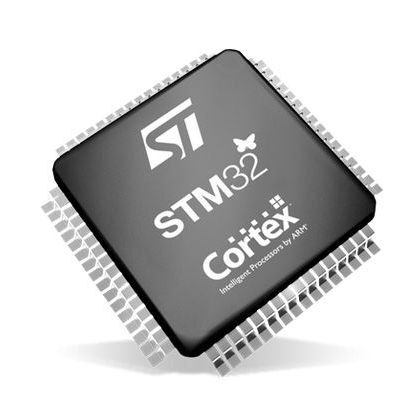
A new operating system, code named Barrelfish is being developed by Microsoft research labs and ETH Zurich in Switzerland. This operating system is being built with multi core operations foremost in priority. It is supposed to be extremely scalable and able to function on a very wide range of hardware. You can download the current snapshot of it on their site and dig into the source code, released under a 3-clause BSD style license. If you would like to learn the primary differences between this OS and Windows or Linux, you can read this PDF.
[via Engadget]















@brian. try relaxing a little, and quit taking thing’s so seriously.
I love how the only not white males are in front, indian and possibly hispanic guy and chick
Read SGF’s post… the distinction between the corporate side of MS and MS Research is pretty stark. MSR publishes on par with a top-tier research institution.
I would say they publish code less than your typical university, but it’s not like MSR never releases their software and universities always do.
Even though there may be good reason to bash the Microsoft aggressive business practices here and there, it’s really amazing how much cool stuff has come out of their research labs recently. As a researcher in computer graphics, I am constantly faced with the brilliant output from MS’s labs, especially MSR China. At the same time, they somehow fail to achieve this buzz for nothing that appears to be the main foundation of some other IT companies.
Did anyone even notice that Live’s Image Search already returned MEANINGFUL results while with Google to this day you have to click through to page 20 before you find the first useful image.
Then you have the Surface / Second Light, Photo Tourism, gigapixel imaging, Project Natal, just to name a few.
Oh dear. My spell checker is apparently still asleep :)
BUA HA HA HA HA
I’m wondering about everyone is just talking about Microsoft?! The mindful reader would have been noticed that this project is a collaboration:
(Quote:)
Copyright (c) 2007, 2008, 2009, ETH Zurich and Microsoft Corporation. All rights reserved.
And further:
(Quote:)
Who wrote Barrelfish?
Barrelfish has been under development since October 2007 at the ETH in Zurich, and at Microsoft Research in Cambridge. Researchers at both sites contribute to the source code repository, which is hosted at ETHZ.
Why are ETH Zurich and Microsoft working together on this?
ETH Zurich is a science and technology university with a strong research orientation. MSR encourages open collaboration with academic colleagues. In this case the collaboration arose because members of the Barrelfish team have worked together previously on another, completely different, research operating system at the University of Cambridge in the 1990s. There is no financial arrangement in place for this project, and MSR is not funding the Barrelfish group at ETHZ for any other project either.
Well, it seems that all this reactions to the “bad word called Microsoft” are simply neonatal reflexes.
Just my 2 cents.
I’m astounded by the amount of people who still can’t tell Free Software from Freeware.
“They both don’t cost money, so it’s the same, right?”
No.
chris, Virtual PC is still proprietary, and its users need Windows to use it. Don’t give me bullshit about the PPC version, which no one uses.
To all the people who’s babbling about “playing videogames in a ‘free’ OS”, get a clue. No one ever talked about porting, or otherwhise making the Win32 API free in any way.
This project having some MS support is merely a PR stunt.
Think of it as another “Office «Open» XML”.
I’ve successfully built and executed this OS in QEmu. The build process is straight forward but pay attention to version specifics, such as the Haskell compiler (GHC). The use of Haskell in this project is interesting and I’ll be working on getting to the bottom of the why. In the mean time, I’m working on getting this to work on actual hardware. Be aware, the kernel compiles as ELF64. They include a ELF32, elver, which allows for the loading of a ELF64 or for QEmu they use a patched version of GRUB that can load the ELF64. I’m currently chainloading gPXE from PXE boot such that I can load the multi-boot OS Barrelfish. Elver causes the machine to go into reboot so I’m working to get Barrelfish up through AMD’s SimNow so that I can step up to the problem. I don’t have any posts up at my website at the moment but there will be over the course of the summer more information as it is related to my summer internship.
Folks this could be something big, moving from the bottle neck of shared memory to distributed kernels.
-mpare
I just wanted to add a quick update…
Elver does work without modification but it is dependent to how GRUB Legacy populates the “string” field in the multiboot header struct. GRUB Legacy gives the ELF string as a full path and includes module arguments in this string.
As such barrelfish search for ‘/’ in the string to determine if a module match is made. Additionally barrefish depends on the inclusion of module arguments by this method. Using a simulator like AMD’s Sim Now one can easily inspect the string format between gPXE and GRUB legacy to immediately conclude why gPXE fails. Checkout find module functions in elver and follow the bootstrap in usr/init/init.c to see why this causes failure in barrelfish.
Cheers,
-mpare
Obviously none of you looked at the license. The BSD license is the viral version. Anything you do with the OS belongs to Microsoft. Yes, you can see the code, yes it costs you nothing to play with it, but everything you do belongs to Microsoft. You are working for them for free. And y’all call yourself hackers! Duh.
if this operating system runs both microsoft and open source applications and still remains Open source as an operating system then with everything else indicated it should be the worlds first universal O/s. I too noticed the token female.